Running a business in London can be exhilarating and challenging. Amidst the city’s vibrant commercial activity, one crucial decision you’ll make is choosing the right accountant. An accountant does more than just crunch numbers; they can provide strategic financial advice, ensure compliance with ever-changing regulations, and help your business grow. However, finding the perfect fit can be daunting. In this detailed guide, we’ll explore how to choose the right accountant for your London-based business, addressing common pain points and offering practical solutions.
Understanding Your Business and Accounting Needs
Before embarking on your search, it’s essential to understand what you need from an accountant. Are you looking for someone to handle basic bookkeeping, or do you need more comprehensive services such as tax planning, financial forecasting, and business strategy?
For instance, if you’re a startup, you might need assistance with setting up accounting systems and managing cash flow. A growing business might require more advanced services like financial analysis and strategic planning. Clearly defining your needs will help you narrow down your choices and find an accountant who can meet your specific requirements.
Example: A tech startup in Shoreditch may need an accountant with experience in handling R&D tax credits and navigating the complexities of equity funding.
Qualifications and Accounting Experience
When it comes to managing your business finances, qualifications and experience are crucial. Look for accountants who are members of professional bodies such as the Institute of Chartered Accountants in England and Wales (ICAEW) or the Association of Chartered Certified Accountants (ACCA). These qualifications ensure a high level of expertise and adherence to professional standards.
Additionally, consider the accountant’s experience in your industry. An accountant familiar with the unique challenges and opportunities in your sector can provide more relevant advice and support.
Example: A retail business in Covent Garden would benefit from an accountant experienced in inventory management and VAT compliance.
Local Knowledge
London’s business environment is unique, with specific regulations and market conditions. An accountant with local knowledge can offer more tailored advice, helping you understand the city’s regulatory landscape effectively.
They should be well-versed in UK tax laws, including VAT, corporation tax, and payroll regulations. Additionally, understanding local economic conditions and industry trends can help your accountant provide more insightful guidance.
Example: An accountant familiar with London’s commercial real estate market can offer valuable advice to a property management firm in Kensington.
Technological Proficiency
In today’s digital age, proficiency with accounting software and technology is a must. The right accountant should be able to leverage technology to streamline your financial processes, enhance accuracy, and provide real-time insights.
Look for accountants who are proficient with popular accounting software like QuickBooks, Xero, or Sage. These tools can automate many accounting tasks, saving time and reducing the risk of errors.
Example: A freelance designer in Soho can benefit from an accountant who uses cloud-based accounting software to manage invoicing, expenses, and tax filings efficiently.
Communication Skills
Good communication is key to a successful relationship with your accountant. You need someone who can explain complex financial concepts in a way that you understand and who is responsive to your queries.
During your initial meetings, pay attention to how well the accountant listens to your needs and explains their services. Clear and open communication ensures that you are both on the same page and can work effectively together.
Example: A restaurant owner in Camden needs an accountant who can provide regular updates on financial performance and advise on cost control measures.
Cost and Value
While cost shouldn’t be the only factor in your decision, it’s important to find an accountant whose fees align with your budget. More importantly, consider the value they bring to your business.
A more experienced accountant might charge higher fees but can save you money in the long run through better financial management and tax planning. Ensure you understand the fee structure and what services are included to avoid any surprises.
Example: A small boutique in Notting Hill might choose a mid-range accountant who offers a balance between cost and comprehensive service.
Compatibility and Trust
Your accountant will have access to sensitive financial information, so it’s crucial to find someone you trust and feel comfortable working with. Trust your instincts during the selection process.
Look for an accountant who shows a genuine interest in helping your business succeed and who aligns with your business values and goals. Building a long-term relationship with your accountant can provide continuity and deeper insights into your business over time.
Example: A family-owned business in Greenwich should look for an accountant who values personal relationships and understands the dynamics of family enterprises.
Comprehensive Services
As your business grows, your accounting needs will evolve. Choosing an accountant who offers a wide range of services can save you the hassle of switching accountants down the line.
Look for accountants who provide comprehensive services, from bookkeeping and payroll to tax planning and business consulting. This ensures they can support your business through various stages of growth.
Example: A media production company in South Bank might need an accountant who can handle complex tax planning, financial forecasting, and international transactions.
Client Testimonials and Case Studies
Hearing from other clients can provide valuable insights into what it’s like to work with a particular accountant. Look for testimonials and case studies that highlight their successes and client satisfaction.
Ask potential accountants for references and speak directly with other business owners about their experiences. This can give you a clearer picture of the accountant’s strengths and areas for improvement.
Example: A digital marketing firm in Clerkenwell can benefit from reading case studies about how the accountant has helped similar businesses optimise their finances and grow.
Trial Period or Initial Consultation
Many accountants offer a trial period or an initial consultation. This can be a great opportunity to see if they’re the right fit for your business without making a long-term commitment.
During the initial consultation, discuss your needs, evaluate the accountant’s approach, and see how well you communicate. Use this period to make an informed decision about whether to continue the relationship.
Example: A tech startup in Tech City can use an initial consultation to discuss their financial challenges and see how the accountant can help them solve funding and scaling issues.
Conclusion
Choosing the right accountant for your London-based business is a critical decision that can significantly impact your financial health and business success. By understanding your needs, evaluating qualifications and experience, ensuring local knowledge, prioritising communication and trust, and seeking comprehensive services, you can find an accountant who will be a valuable partner in your business journey.
At Adroit Consulting Group, we’re dedicated to helping London’s small businesses thrive. Contact us today to book a free consultation and learn how we can support your business’s financial needs. Take the first step towards financial success.
Click here to book your free consultation now.
By leveraging the expertise and support of our expert London accountants, your business can limit financial challenges and seize growth opportunities with confidence.

